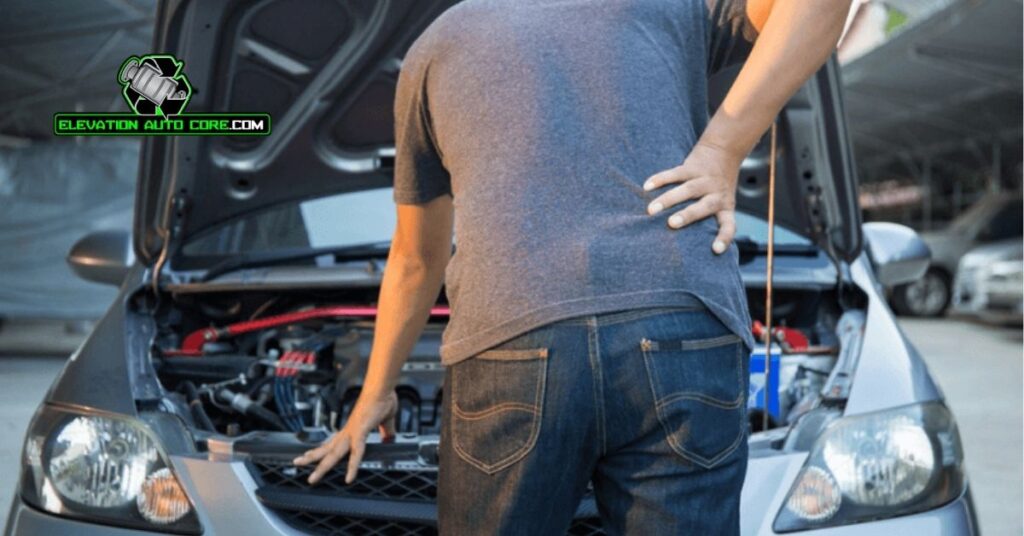Is your car struggling because of bad gas? Contaminated or old fuel can wreak havoc on your vehicle’s performance, leaving you frustrated and unsure of what to do next. Don’t let poor-quality gas sideline your ride—there are simple and effective steps you can take to fix the problem and get back on the road smoothly. Keep reading to learn how to tackle bad gas and protect your car’s engine.
Entities: car, bad gas, contaminated fuel, old fuel, vehicle’s performance, engine.
Common Causes Of Bad Gas In Cars

Bad gas can result from various factors that degrade fuel quality or introduce contaminants. Understanding the root causes helps you take preventive measures to protect your vehicle.
Understanding Gas Contamination
Contaminated gas often comes from impurities entering the fuel supply. Dirt, water, or sediment may infiltrate during transportation or storage. Gas can degrade over time if stored improperly. Environmental exposure, like high humidity, increases the risk of moisture mixing with fuel. Selecting reputable gas stations minimizes exposure to contaminated fuel.
Recognizing Symptoms Of Bad Gas
Engine performance issues often indicate bad gas. Symptoms like difficulty starting, engine knocking, or sputtering can occur. Poor acceleration may arise due to reduced combustion efficiency. A strong, unusual gas odor sometimes signals contamination or fuel breakdown. Consistent symptom checks ensure you identify bad gas early to avoid costly repairs.
Effects Of Bad Gas On Your Vehicle

Bad gas affects multiple components of your vehicle, potentially leading to costly repairs and compromised driving performance. Recognizing these effects helps you address the problem faster.
Engine Performance Issues
Engines rely on clean fuel for smooth operation. Contaminated gas disrupts combustion, causing rough idling, stalling, or misfiring. Poor-quality fuel lowers power output, making acceleration sluggish and your car less responsive. Over time, this strain reduces efficiency and hastens wear on internal components.
Damage To Fuel System Components
Dirty or old gas increases residue buildup in the fuel system. It clogs filters, injectors, and fuel lines, impairing function and restricting the delivery of fuel to the engine. Water contamination accelerates rust and corrosion, particularly in the fuel tank and pump. Prolonged exposure to bad gas can lead to complete component failures, requiring expensive replacements.
How To Treat Bad Gas In Car

Bad gas impacts your vehicle’s performance but can be managed with the correct steps. Addressing the problem quickly helps protect your engine and avoid further damage.
Draining The Fuel Tank
Emptying the fuel tank is an effective way to eliminate contaminated gas. Use a siphon pump to safely extract the fuel, ensuring every drop is removed. Dispose of the bad gas following local environmental regulations to prevent harm. Perform this step meticulously if the fuel shows visible sediment, water, or discoloration.
Using Fuel Additives
Fuel system cleaners help neutralize minor contamination without draining. Additives like isopropyl alcohol treat water presence by breaking it down, allowing it to pass harmlessly through the engine. Choose products labeled for cleaning residues and improving fuel quality. Follow the manufacturer’s instructions for proper dosage and application.
Refueling With Fresh Gas
Filling the tank with high-quality gasoline restores optimal performance. Prevent contamination by refueling at trusted stations with proper storage and handling practices. Use premium fuel if recommended to safeguard the engine and boost efficiency. Monitor the car’s performance after refueling, and repeat the process if minor symptoms persist.
Preventing Bad Gas In The Future

Avoiding bad gas is essential to maintaining your car’s performance and preventing costly repairs. Focusing on fuel quality and regular upkeep reduces the risk of fuel-related issues.
Choosing The Right Fuel
Select high-quality gasoline from reputable stations. Trusted providers are less likely to supply contaminated or substandard fuel. Use the octane rating recommended in your vehicle’s manual for optimal engine performance. Avoid cheap or questionable gas sources to minimize contamination risks. Many stations label their fuel with additives that improve cleanliness and efficiency, so choosing such options helps keep your engine running smoothly.
Proper Vehicle Maintenance
Perform routine vehicle maintenance to safeguard against issues caused by fuel. Regularly check and replace the fuel filter as it can trap impurities before they reach the engine. Periodic inspections of the fuel delivery system, including injectors and lines, ensure optimal fuel flow. Keep your gas tank at least a quarter full to prevent water condensation, especially in humid or cold climates. Also, adding stabilizers before prolonged storage maintains the fuel’s quality over time.
Conclusion
Dealing with bad gas doesn’t have to be overwhelming when you know how to approach it. By addressing the issue promptly and taking preventive measures, you can protect your vehicle’s performance and avoid costly repairs. Prioritizing high-quality fuel and regular maintenance will keep your engine running smoothly and ensure a more reliable driving experience. Stay proactive, and you’ll save yourself time, money, and frustration down the road.

